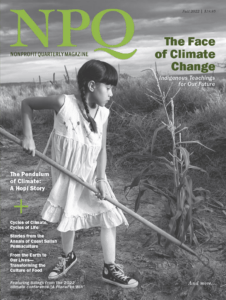
December 18, 2018; Huffington Post and WAMU (public radio)
Even as the United States has absented itself from international talks on controlling climate change, cities and states move forward with their own initiatives, using one another as models for action.
A case in point comes from Washington, DC. “City lawmakers in the District of Columbia voted unanimously Tuesday to pass legislation mandating 100 percent renewable electricity in the capital by 2032,” reports Alexander Kaufman in the Huffington Post. The District, notes WAMU’s Jacob Fenton, previously required only 50 percent renewable energy. The Clean Energy DC Omnibus Act of 2018, which passed City Council unanimously, furthermore requires “that by 14 years from now, the nation’s capital must be getting half its electricity from zero-emissions sources like solar and wind.”
“The mandate for 100 percent renewables by 2032,” notes Fenton “is the most ambitious renewable portfolio standard currently on the books among the states.”
Part of the reason for the unanimous vote, Fenton explains, has to do with the desire of utility companies to avoid a carbon tax. Both the private gas and electric companies came out in favor of the bill. Pepco Holdings President Dave Velazquez called the bill “an important step toward advancing the cause of clean energy for the benefit of every ward in the District of Columbia.”
The bill, Kaufman adds, “also goes beyond the utility sector, requiring that all public transportation and privately owned fleet vehicles emit zero carbon dioxide by 2045, similar to California’s newly adopted auto emissions target. The provision applies to fleets with more than 50 passengers, meaning that ride-hailing services like Uber and Lyft are included.
Sign up for our free newsletters
Subscribe to NPQ's newsletters to have our top stories delivered directly to your inbox.
By signing up, you agree to our privacy policy and terms of use, and to receive messages from NPQ and our partners.
“Even though by ourselves we are a small jurisdiction, we can serve and have served as a model for other jurisdictions,” Mary Cheh, the Democratic councilwoman who authored the original bill, said in a statement. “More importantly, we are in a loose association with other local and state jurisdictions so that even though the federal government is in default of international climate accords, we will meet them.”
At the Additionally, the District of Columbia announced plans to join next year with nine states―Connecticut, Delaware, Maryland, Massachusetts, New Jersey, Pennsylvania, Rhode Island, Vermont, and Virginia―to form a regional cap-and-trade market to limit vehicle emissions.
Kaufman notes that, “Across the US, two states and more than 90 cities have pledged to adopt 100 percent renewable electricity, according to the Sierra Club. Six cities―Aspen, Colorado; Burlington, Vermont; Georgetown, Texas; Greensburg, Kansas; Kodiak Island, Alaska; and Rock Port, Missouri―have already hit their targets.”
“But,” Kaufman adds, “no major city has adopted as far-reaching a climate policy as Washington.”
“This bill is among the most ambitious pieces of climate legislation in the country,” remarked Mary Anne Hitt, director of the Sierra Club’s Beyond Coal campaign, in a statement. Hitt expressed hope that DC’s decision would have repercussions elsewhere: “The decisions made and policies discussed within the nation’s capital affect the country, and the world,” she added.—Steve Dubb














